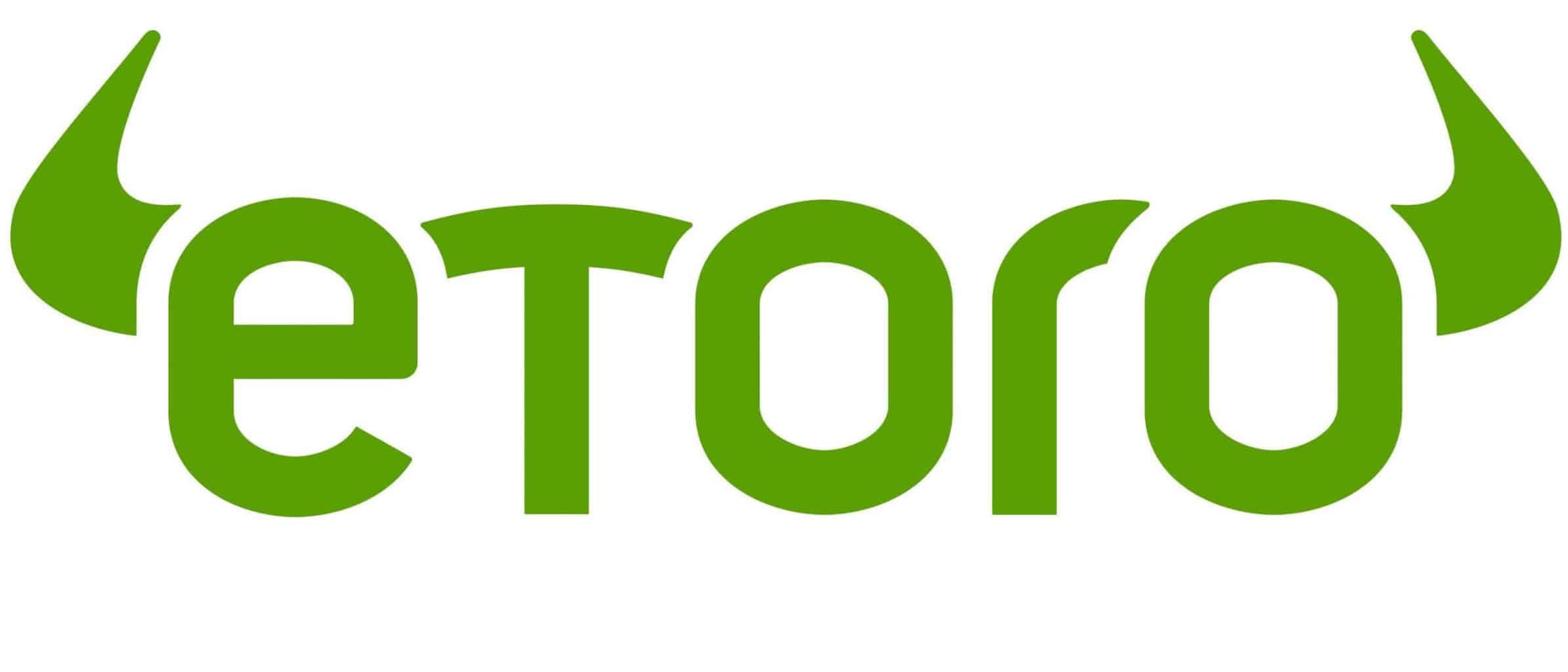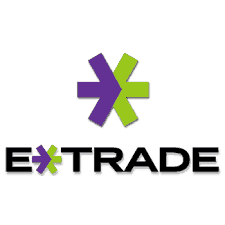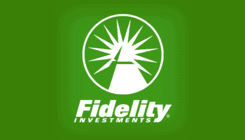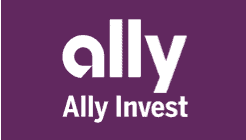Bond Indexes – What Are They and How They Work
Bonds are imperative investment instruments, which help reduce volatility for equity investors in times of stock market trouble, but they are tough integrating into a diversified portfolio, in a way they complement the dynamics of your other investments.
It is an unwritten rule in investment that you’ve to find the right balance between risk and return. So, you’ve also got to predict any market movement in interest rates. These tasks are tedious and involving. That’s where Exchange Traded Funds comes in, bringing in low-cost, flexible and diversified fixed income exposure into the fold.
Bond Funds are sophisticated, and maybe challenging to understand, but not if you have an idea of bond indexes. So what’s a bond index?
-
-
Featured Bonds Broker 2020
- Minimum deposit and investment just $5
- Access to Bonds, as well as Stocks and Funds
- Very user friendly platform
What’s a Bond Index?
A bond index is a standard measure of the changes in performance within a group of bonds. It means several bonds make up an index that serves as a benchmark for part of the bond market.
Bond indexes work just the same way as stock indexes. The Dow Jones Industrial Average (DJIA) and the S&P 500, which are stock indexes, can help understand bond indexes. The DJIA tracks the stock price performance of 30 large, established publicly traded companies, while the S&P 500 tracks the market capitalization of 500 large publicly traded companies.
Being merely a mathematical measure, you can invest in neither of the DJIA nor S&P 500. You can, however, invest in index funds designed to match the performance of a particular index.
Just the same way, you can’t invest in a bond index. You, instead, invest in bond index funds. Investment managers designed such funds to match the performance of a particular bond index.
Examples of Bond Indexes
Here are a few of the most popular bond indexes and what they attempt to measure:
- Barclays Capital US Aggregate Bond Index – tracks the entire taxable US bond market.
- Barclays Capital US Treasury Inflation-Protected Securities (TIPS) Index – tracks only TIPS. These TIPS only differ on their maturity dates.
- iBoxx $ Liquid Investment Grade Index – tracks the most heavily traded investment-grade corporate bonds.
- Barclays Capital High Yield Very Liquid Index –tracks the most heavily traded high-yield corporate bonds.
We have a list of the best providers that can help you get the right bond index funds. But first, how do we rank them?
How We Ranked the Bond Index Fund Providers
- Account fees annual, transfer, closing, inactivity, and Commission free options
- Convenience
- Types and number of tradable securities
- Trading platform and availability of mobile support
- Promotions and Discounts
- Management reputation.
- 24/7 Customer Support
Where You Can Buy Bond Index Funds
Bond index fund products offer a cost-effective and straightforward way to claim your stake in the bond market. They offer you an extensive diversification, awards you low fees, and their approach is direct that even new investors can understand. So, as an investor, if you are seeking to live off your investment, you should go with a bond index. You can buy bond index-related products such as the traditional bond mutual funds or exchange-traded funds (ETFs), often available through a broker.
Note: Most of the features offered by Brokerage platforms are for active traders, not passive investors like you.eToro – Best Broker Overall
eToro is a global online brokerage firm boasting of over 10 million traders spread across over 150 countries. It allows you to trade on not only bond index funds, but also stocks, commodities, ETFs and even forex, including cryptocurrencies.
The platform is particularly popular because of its unique social features, CopyTrading and CopyPortfolios, which enable traders to automatically copy in real-time the trading strategies of the most successful clients on the platform. It doesn’t matter about your trading skills. eToro has a robust community that enables you to interact with different traders at skill levels in a supportive environment. You can share ideas through live chats and discussion boards.
FCA (UK), ASIC (Australia), and CySEC (Cyprus) have all certified eToro as a legitimate service provider with asset coverage including CFDs, ETFs, Indexes, Forex, Cryptocurrency, Shares, and Commodities.
You need a minimum initial deposit of $200 to start trading, but if you are just beginning, you can utilize the demo account to learn trading without having to risk real money at all as you hone your skills. You can as well use the free eToro courses.
The platform works well on both PC and mobile. Besides, it’s available as a Mobile App. It has a wide range of ETFs trading on eToro. You should quickly pick those that match your own investment goals.
Our Rating
- Easy to create an eToro account with a demo account to help you brush up your skills.
- The low trading minimum amount for a live account.
- eToro has an intuitive mobile app
- No second step security verification features, such as SMS alert.
- Even though they don’t charge commissions, they have expensive trading fees.
75% of investors lose money when trading CFDs.Charles Schwab – Best Low-Cost Broker
Bolstered by its recent acquisition of TD Ameritrade, Schwab offers a modern and straightforward investing platform, helping individual novice investors improve their abilities. All exchange-traded funds trade for free, zero commission, yet you’ve access to over 4,000 funds, and you can invest as little as $100.
As an investor, the platform encourages you to customize your choices and create a diverse portfolio with minimal risk as you browse through the categorized list.
Charles Schwab delivers an excellent trading platform through its StreetSmart Edge and StreetSmart, and many other features. You can customize the platform, download it as a software or access its cloud-based technology for ETFs, options, and stock trading.
Whether you go with the desktop or the smartphone version, you have access to robust research materials and tools, regardless of your trading prowess.
Finally, the broker provides mobile trading, available on either the Schwab.com or StreetSmart Mobile apps, but its greatest allure is its large selection of free trading mutual funds.
Though it charges no annual or inactivity fee, you’ll part with $50 when you transfer out of assets. However, if it is a partial transfer, you’ll pay merely $25.
The long and short of it, Schwab covers all bases at a reasonably low price in the market, making it the best ETF online broker for everyone as far as cost is concerned.
Our Rating
- 245 commission-free ETFs
- Broad Insights on ETFs
- Wide range of ETF
- Uninvested balance is swept into an account, paying less than 0.50%.
E-Trade – Best Broker for Active Traders
Even though E-Trade is on the verge of joining Morgan Stanley, according to a $13 billion deal announced in February 2020, E-Trade still does it does best; providing its customers with the best investment platform. It has been said the deal may happen any time in the year, pending regulatory approval.
As an E-Trade customer, the website provides you with free streaming and real-time data and market quotes. These features also come along with live commentaries, analysis, and even more. You can access all that on the dashboard where you can also track your account, customize a watch list, view market data, and complete trades.
When using the E-Trade Pro, you have impressive access to idea-generating tools, including the Strategy Scanner, and enjoy back-testing functionalities.
If you are an active trader, though, we would suggest you go with the Power E-Trade, which was part of the OptionsHouse outstanding features before the E-Trade acquired the broker years ago. The platform provides you with more than 100 technical studies with data streaming in real-time. You also access over 30 drawing tools, trade tickets, trading ladders, and customizable options chain views.
E-Trade is a broker that allows you to invest in a balanced portfolio with tradable securities such as Stocks, Bonds, Mutual funds, ETFs, Options, and Futures. Both frequent traders and beginners have access to professional-level trading platforms, a library of educational resources, and helpful tools.
You don’t pay any commissions ETF, stock, or options trades. Interestingly, E-Trade occasionally provides bonuses, including $100 for deposits and transfers equal to or greater than $5,000. Freebies are a great way to increase your bankroll.
The trading platforms include E-Trade Web, Power E-Trade, and E-Trade Pro that are all available for free to all customers.
Our Rating
- Large investment selection.
- Access to extensive research.
- It provides Commission-free stock, options, and ETF trades.
- The website is difficult to navigate.
Fidelity – Best Broker for Mutual Funds
Fidelity is not a pushover; it’s one of the best-known trading company, with a strong reputation for its mutual funds. One of its greatest allures is not charging transactional fees or trading commissions. Equally, it has a swath of research content, and it’s one of the most easy-to-use trading platforms for both beginners and more advanced traders.
Fidelity Long-Term Treasury Bond Index (FNBGX) has at least 80% of its assets in securities. Bloomberg Barclays U.S. Long Treasury Index includes it. With a dollar-weighted average maturity of 10 years or more, this is a long-term investment. Alternatively, you can go with the Fidelity Short-Term Treasury Bond Index (FUMBX), which upholds a dollar-weighted average maturity of 3 – 5 years.
Other than Bond index funds, Fidelity provides Stocks, Mutual funds, ETFs, and Options as traded securities. The platform is one of the best-rounded brokerages available today, with no commissions on ETF stock or options trades and a select few index funds.
You may have stumbled on its litigation struggle with Hong Kong authorities. Fidelity has no history of flaunting the law, save for this isolated case, in which the Hong Kong authorities accused it of trading for over a decade without a valid license.
You can access advanced brokerage tools at $4.95 per trade. These tools include Active Trader Pro, which you can customize to give you access to real-time market data and quotes. The feature also has an analytics tool and perfect Strategy tips.
There is also the Wealth-Lab Pro, but which is an advanced strategy testing tool with historical data. You need to have a minimum balance of $25,000 to explore it.
You can use Fidelity on both mobile and PC. Its mobile platform is equally powerful, and can beginners can easily find their way around it.
With nearly third-party research providers, among them six providers and options strategy ideas from options analysis software, Fidelity is unmatched in research content.
Simply put, Fidelity charges zero trading commissions, with over 3,500 no-transaction-fee mutual funds, and integrates top-notch research tools and trading platforms. With zero-fee index funds and impeccable customer service, you have no reason to look elsewhere.
Our Rating
- Superb research and best source available
- Commission-free stock, ETF, and options trading.
- Good fit for active traders
- Relatively high broker-assisted trade fee.
Ally Invest – Best Low Cost for Passive Traders
Ally Invest is among the low-cost brokers that you can use to buy Bond Index funds. The broker appeals to both novice and experienced investors. Some of its traded securities include Stocks, Bonds, Mutual funds, ETFs, Options, and Forex. Besides, it provides an automated portfolio management option that comes with a suite of free tools for experienced investors.
You can choose the browser-based platform that allows you to enjoy free screening tools, customizable charting, and access research and real-time data. Alternatively, you use the Mobile app (Available on iOS and Android), which allows you to track, get quotes, and trade on the go.
While Ally Invest won’t charge you any commission on trading ETFs, it doesn’t offer transaction-fee-free mutual funds. You pay $9.95 per trade for no-load funds but vary for funds with a sales load.
You’ll find its web-based platform pretty easy to use as you don’t need to download it. The mobile app, Ally Mobile, is equally compelling as it facilitates you to trade via mobile devices with Ally Mobile. There’s also the dedicate Ally Forex, a dedicated forex trading app.
Ally Invest suite includes investing tools include an options pricing calculator and strategy scanner. The calculator is not just a simple mathematics tool but one which compares current bid/ask prices to the forecast theoretical values. On the other hand, a strategy scanner identifies and executes the option strategies you have chosen.
Ally Invest is an all-rounded easy-to-use trading platform with competitive pricing, supportive trading tools, and with no account minimum. Its commission-free trades are attractive, but it’s not the option for you if you also want no-transaction-fee mutual funds.
Our Rating
- No account minimum.
- It is a robust web-based platform with comprehensive research and analytic tools.
- Commission-free ETF, stock, and options trades.
- No free transactions for mutual funds.
- No physical branches.
What are the Best Index Funds?
Now you know where you can buy the bond index fund, but what are the best options for you if you want to hold? Total bond market funds form a wise choice if you are looking to create a solid core holding for a fixed-income portfolio. However, you need to know what types of bonds would make the best investment for you.
Typically, bond prices move in the reverse direction of interest rates. When the interest rates rise, the bond prices fall, and when then the interest rate falls, the bond prices rise.
Long-Term Bonds – Long-term bond funds tend are your best shot when interest rates are falling.
Short-Term Bonds – The best option if you are looking for low relative market risk with investment periods under five years. They are yours to go-type when the interest rates are rising.
International Bonds – You can diversify your portfolio beyond the US bond market by going for index funds that invest in foreign bonds.
Alternative Bond Types – We have niche categories of bonds, some of which are available as index funds. Worthy of your attention are TIPS – tax-exempt bonds and Treasury Inflation-Protected Securities funds.
Bond index funds are useful investment tools as far as diversifying your investments goes. They can help you beat actively managed funds. They are, however, passively managed, which means the portfolio managers don’t buy and sell the holdings at their discretion. Sometimes, when interest rates are rising and the bond price fall, your holdings lose value as the fund manager cannot sell them as actively managed assets. It’s also challenging to accurately and reliably predict the markets. Because of this uncertainty, index funds are the best investment vehicles.
Note: Because index funds are much diversified, even if it is within a particular sector, it is nearly impossible for them to lose all their value, which is why they are a safe investment.Pros and Cons Bond Index Funds
Pros:
- Diversification – Bonds that track the performance of the broader bond market offer a diversified portfolio rather than investing in a specific sector of the market.
- Low Fees – Fund managers passively manage bond funds. Instead of beating the market, these funds seek to mimic it. They require a smaller degree of management, which translates to low operating costs.
- Payments – Bond index funds are a perfect option for you if you seek to earn live off your investment income. The funds pay interest more frequently (every month) than individual bonds, which do this on a semi-annual basis.
- Consistent and predictable income – With an index fund, your return is the representative of the broader market, so you know what you’ll be getting. As for actively managed funds, income is inconsistent and unpredictable since the fund seeks to beat the market.
Cons:
- Volatility – With most broad-based bond index funds investing in government securities, they are highly sensitive to interest rate fluctuations.
- Performance – Bonds are generally less risky investments, and with less risk, comes little returns. The bond funds don’t return as much as other investments of similar value would.
- Missing Bond Advantage – The longer you hold an individual bond, the lower the risk. However, this doesn’t apply to the bond funds portfolio contains different relationships with a different issue and maturity dates.
Conclusion
In investment, your risk tolerance and time factors play the ultimate role. Bond index funds are excellent investment vehicles if you are looking for safer, low-fee securities but which can earn you a regular income.
You can buy such bond index funds from several brokers in the market. A good broker should provide you with other investment options such as stocks, mutual funds, ETFs, Options, Forex, and many more.
Even as you invest in bond index funds, you should be aware that you may encounter hidden risks. Government-backed securities form the better part of these investment vehicles, but such securities also come with high volatility interest rates. All in all, bond indexes are excellent investment vehicles for risk-averse individuals.
Featured Bonds Broker 2020
- Minimum deposit and investment just $5
- Access to Bonds, as well as Stocks and Funds
- Very user friendly platform
FAQ
How do bond index funds work?
A bond index fund takes the form of either mutual funds or exchange-traded funds (ETFs). These funds hold securities which they invest in, and in the case of bonds, they mimic the performance of the market by tracking the bond securities in their holdings.
How does rising interest affect bonds?
Bond prices rise with the declining interest rates and fall with rising interest rates. Bond index funds, thus, perform well when the interest rates decline as the funds the underlying securities are likely to carry higher coupon rates than the just issued bonds. Besides, the former is near maturity than the latter.
Can I lose funds in bond index funds?
Rarely, but it does happen when bonds managers sell the bonds before maturity in an environment where the interest rate rates are rising. At this point, investors shy away from bonds, and those willing to buy do so at a discount so the fund loses net asset value.
Is there any difference between bond funds and bonds?
A bond is a debt obligation issued by corporations or governments in exchange for credit. A bondholder is essentially a creditor to the entity issuing the bond and is entitled to interest for a stated period. On the other hand, a bond fund is a pooled investment that invests in bonds. In one bond fund, there can be multiple (tens or hundreds) of underlying bonds to form one bond portfolio.
Thadues
Thadues
View all posts by ThaduesThadeus Geodfrey has been a contract writer for Lernbonds since 2019. As a fulltime investment writer, Thadeus oversees much of the personal-finance and investment-planning content published daily on this site. With a background as an iGaming expert and independent financial consultant, Thadeus’s articles are based on years of experience from all angles of the financial world.
WARNING: The content on this site should not be considered investment advice. Investing is speculative. When investing your capital is at risk. This site is not intended for use in jurisdictions in which the trading or investments described are prohibited and should only be used by such persons and in such ways as are legally permitted. Your investment may not qualify for investor protection in your country or state of residence, so please conduct your own due diligence. Contracts for Difference (“CFDs”) are leveraged products and carry a significant risk of loss to your capital. Please ensure you fully understand the risks and seek independent advice. This website is free for you to use but we may receive commission from the companies we feature on this site.
Copyright © 2026 | Learnbonds.com
We use cookies to ensure that we give you the best experience on our website. If you continue to use this site we will assume that you are happy with it.Scroll Up







